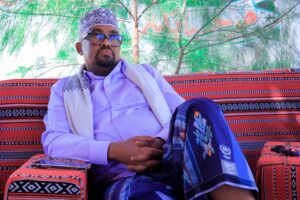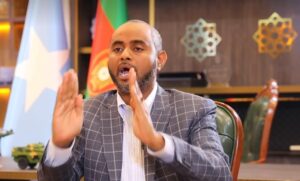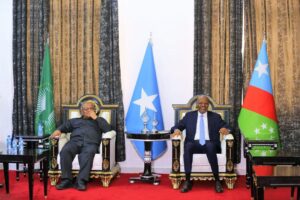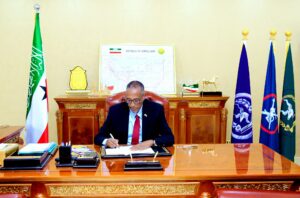Somalia’s prime minister: ‘We don’t want Kenya to push [out] refugees’
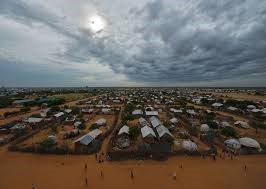
Thursday, June 16, 2016
This file photo taken on April 28, 2015, shows the eastern sector of the IFO-2 camp in the sprawling Dadaab refugee camp in Kenya. (TONY KARUMBA/Agence France-Presse via Getty Images)
By Karen Attiah
The government of Kenya has come under intense criticism from the United Nations and human rights groups for announcing that it will shut down Dadaab refugee camp by November, which, with nearly 400,000 residents, is the largest in the world.
Critics have said that Kenya is unfairly blaming Somalian refugees for al-Shabab terrorist attacks and is making a grave mistake by threatening to send refugees back into areas of Somalia still ravaged by the Islamist terrorist group. Kenya threatened to close the camp last year, after an al-Shabab attack on Garissa University killed 147 people; it later backed down on its decision.
But this time, Kenyan President Uhuru Kenyatta has said, according to a spokesman, “the decision to repatriate the refugees is final.” On Monday, Somalia’s prime minister, Omar Abdirashid Ali Sharmarke, sat down with The Post and discussed the decision to close Dadaab.
On Kenya’s decision to close the Dadaab camp:
“[After last year’s] attacks in Kenya, after Garissa, there was blame on refugees, that there was a link between what happened and refugees from Dadaab. I don’t want to dispute what the Kenyan authorities are saying, but nonetheless, it was Kenyans who really carried [it] out, Kenyan Muslims.”
As for returning refugees to Somalia, Sharmarke said that that the Somalian government didn’t see refugees as a burden, but rather as potential contributors to the success of Somalia. “We want our refugees back. Definitely.
But you have to calibrate the way they are coming back. You can’t just throw them back with nothing. We’ve been asking the international community and Kenya for a way that these refugees can come back gradually. We understand that Kenya is going through elections, and that [the decision] might be political also.”
Sharmarke added, “We don’t want Kenya to push [out] refugees at this stage in time, because it can create much more insecurity if these refugees are just kind of thrown out, with nothing on the civil society end.
These are youth — they can join radical groups and create more instability for the two countries.”
Sharmarke said that in the long run, Dadaab will be shut down, but that to do so this year “would be very tough.”
He said that the Somali government is still trying to persuade the Kenyan government to extend the closure of the camps, saying that three years would be a more realistic timeline.
On the role of the international community with Somali refugees:
“The two presidents [of Somalia and Kenya] just met last week in Nairobi. There’s an understanding now to cool down the rhetoric and to work hard on how these refugees will be repatriated.
I think Kenya and the international community somehow need to play a more proactive role. The U.N. agencies haven’t been a way forward for these refugees, there hasn’t either been a repatriation process that’s active, [the refugees] haven’t been integrated into the Kenyan system, because some of them were born there [in Kenya].
There hasn’t been any kind of process of making them a citizen of the country. Or at least taking them in to other countries in the world.”
Sharmarke said that he believes Kenya is expressing frustration at the gap of international financial support for Dadaab while at the same time having to deal with being on the front lines of the battle against al-Shabab.
Dadaab is an “open prison”
Somalis began fleeing to Dadaab in 1991 after the collapse of Mohamed Siad Barre’s dictatorship. Sharmarke said that when he visited the camp last year, he felt that “the only thing that was going on for them is that the kids have education.” He added, “Nonetheless, it was kind of an open prison for them. Nobody would wish to stay there as long as [the refugees] have stayed.”
According to local media Wednesday, Kenyan Foreign Minister Amina Mohamed said that United Nations Secretary General Ban Ki-moon supported Kenya’s decision: “He obviously agrees that Dadaab has been in place for a very long time.
The only obvious issue for the U.N. has been that the repatriation has to be done in a dignified manner and he was given assurances that that would happen.”
The United Nations has yet to officially comment on whether it will cave to Kenya’s demands to close the camp. We will update when that happens.

